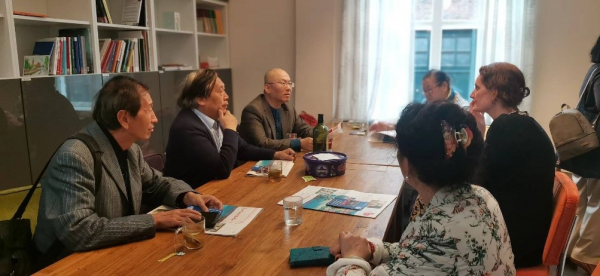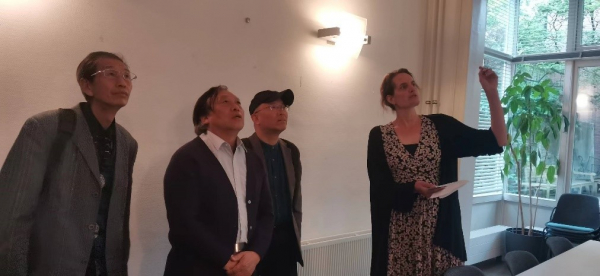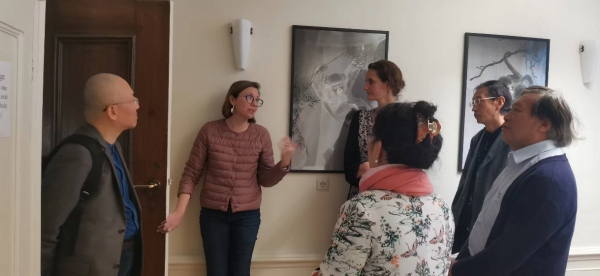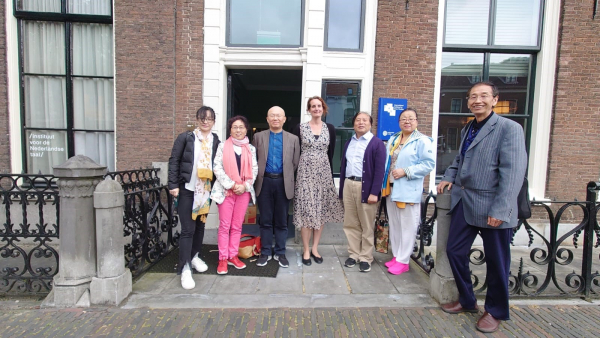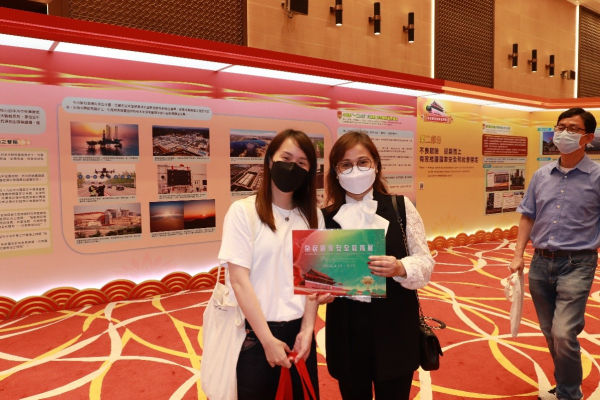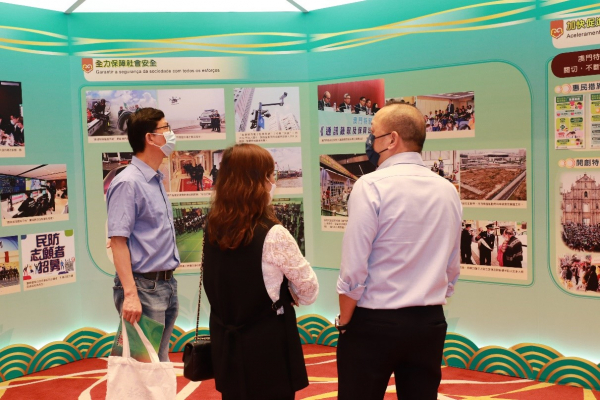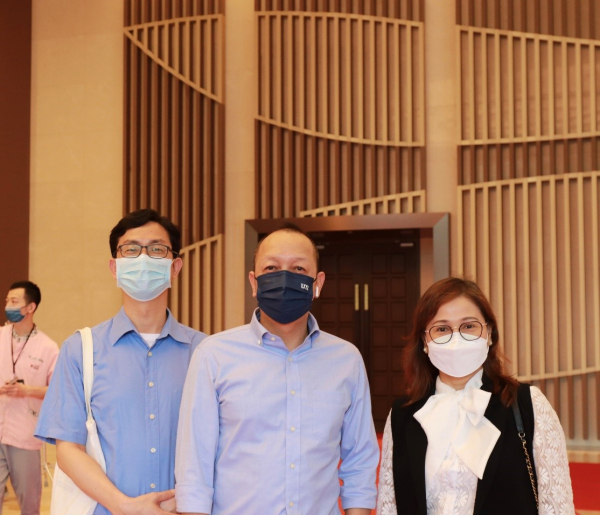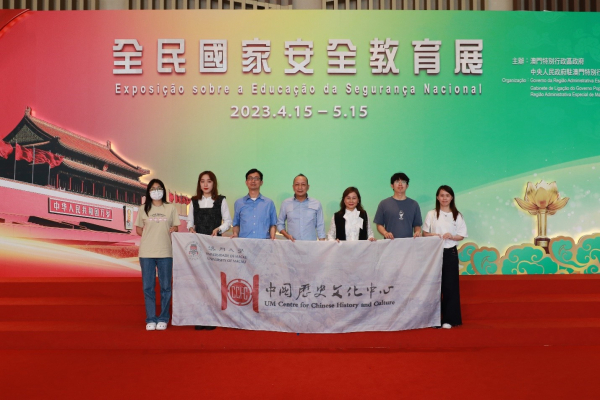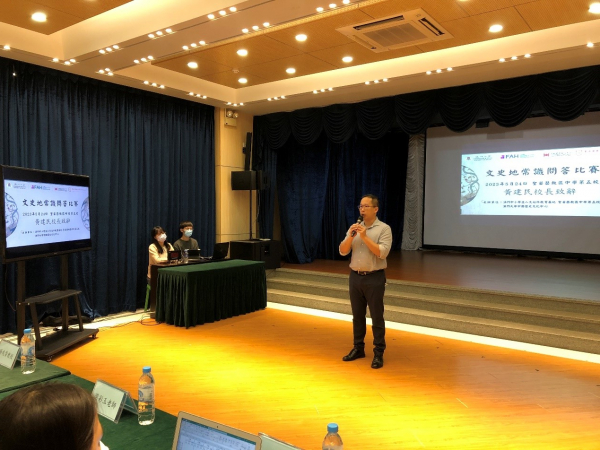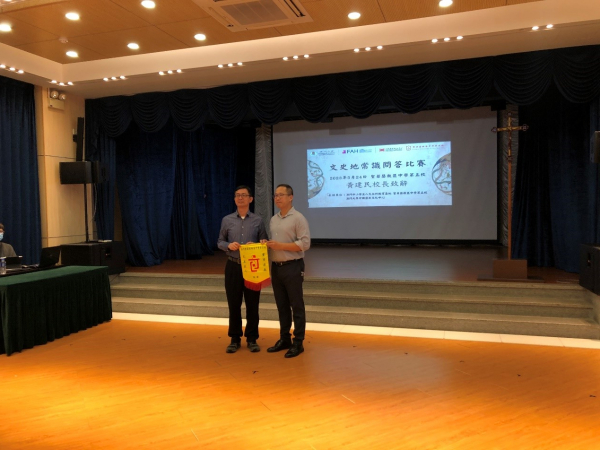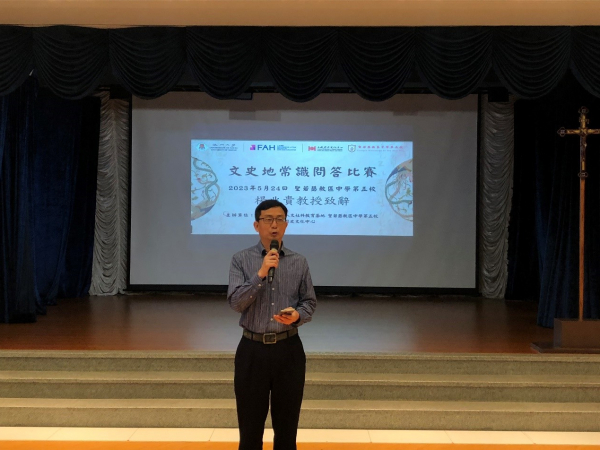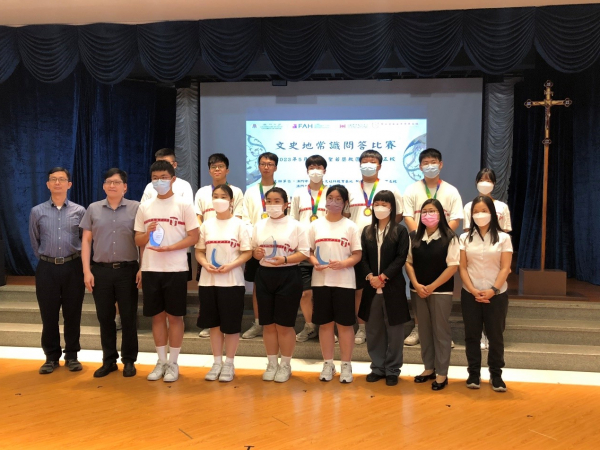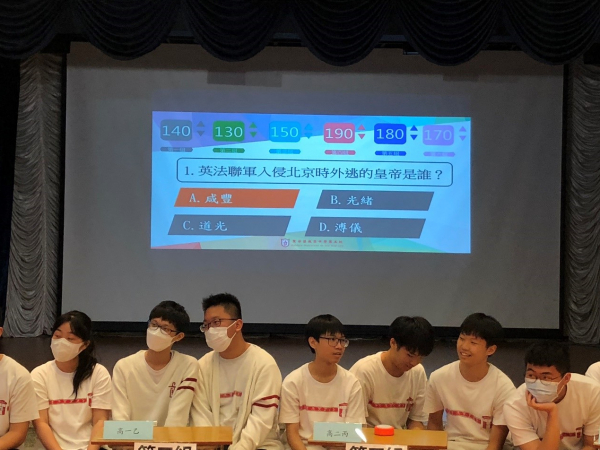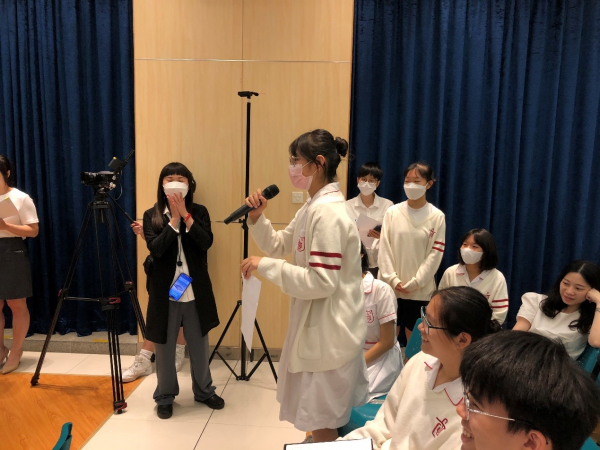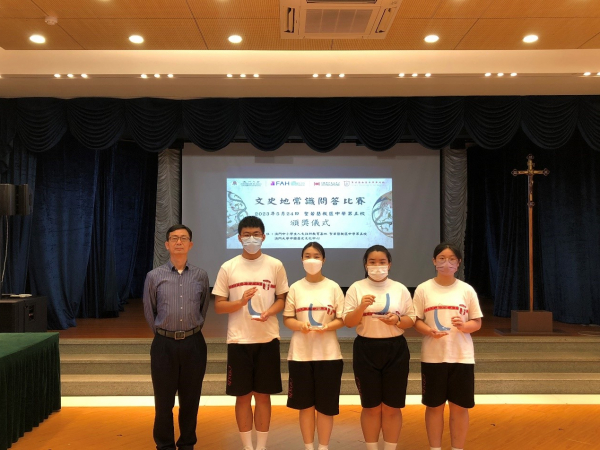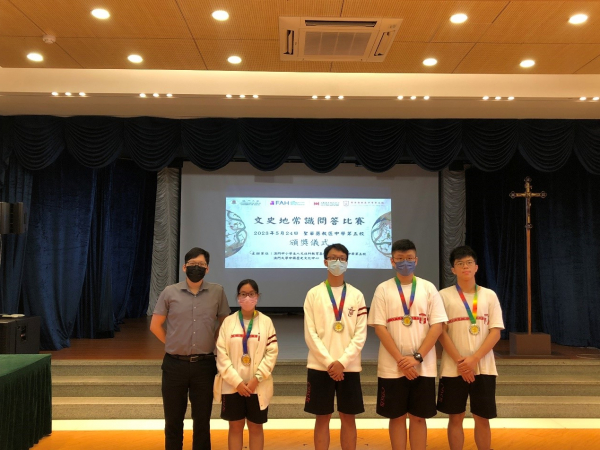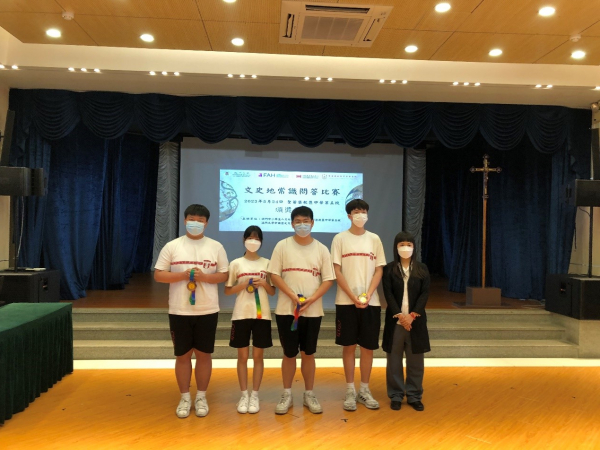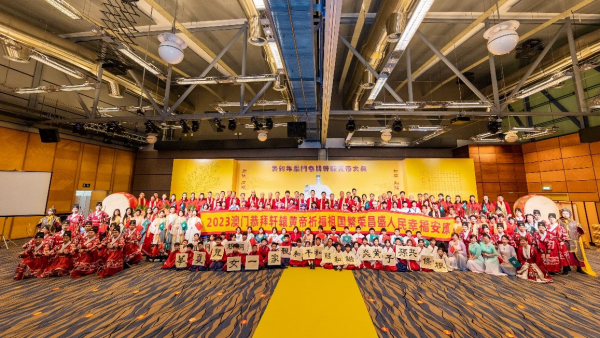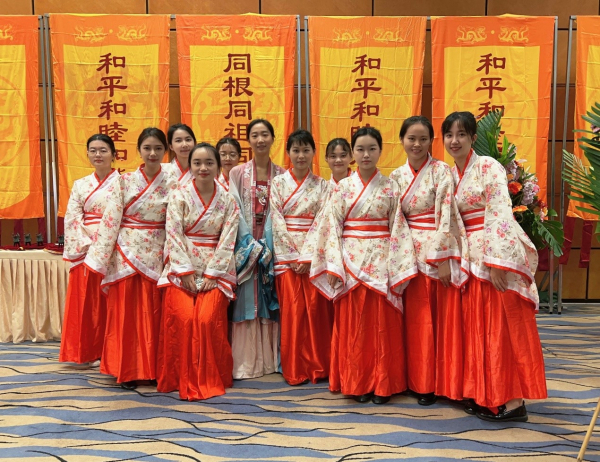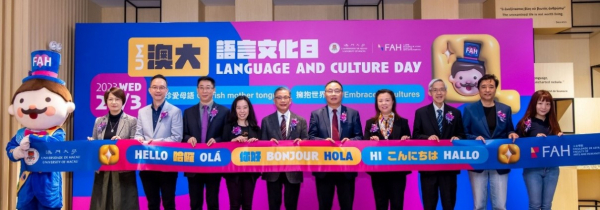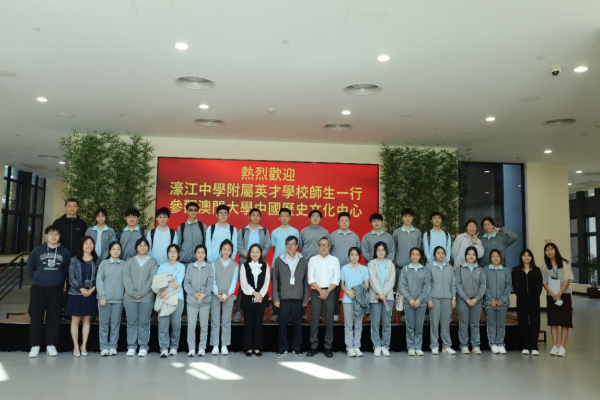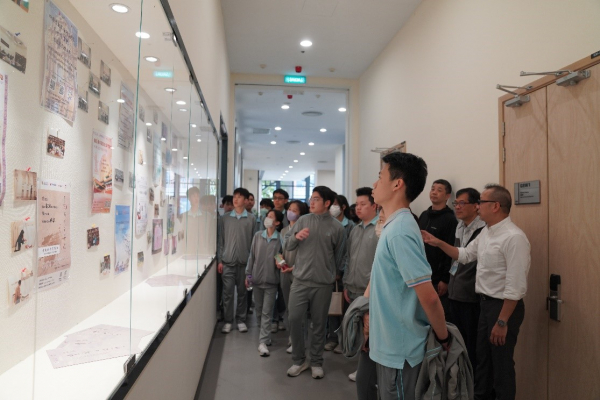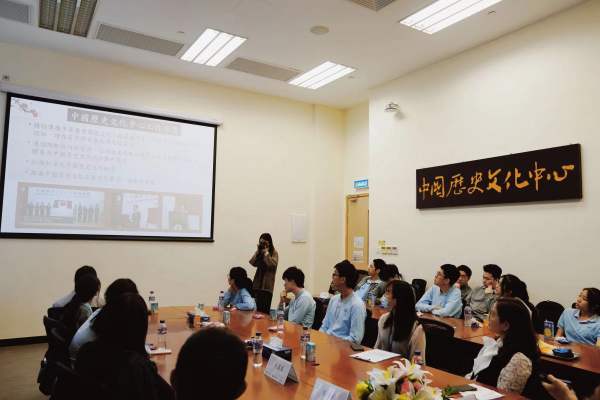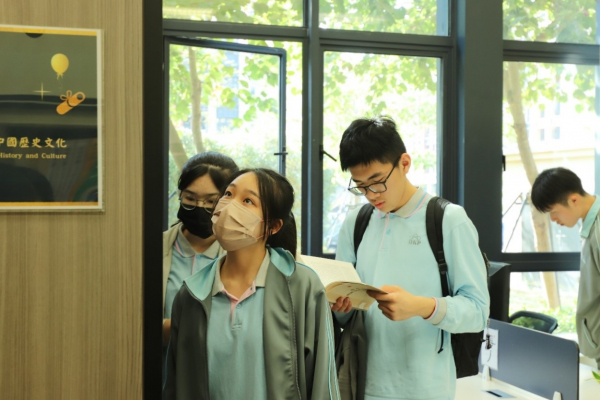2023 Greater Bay Area Visual Arts Group Exhibition Successfully Held at the Centre for Chinese History and Culture of the University of Macau
On 5th August , 2023, the “2023 Greater Bay Area Visual Arts Group Exhibition (Macao Region)” was officially opened by the Centre for Chinese History and Culture of the University of Macau, the Macao Calligraphers Association, the Addy Yiu Visual Arts Research Association, the Hong Kong Multi-Visual Arts Association in collaboration with Macao Digital Photogaphy Association, the Shenzhen Young Photographers’ Association(SZYPA), the Shenzhen Tianli Huifang Vision Company Limited, and Foshan City Women Literary and Artistic Artists’ Association.
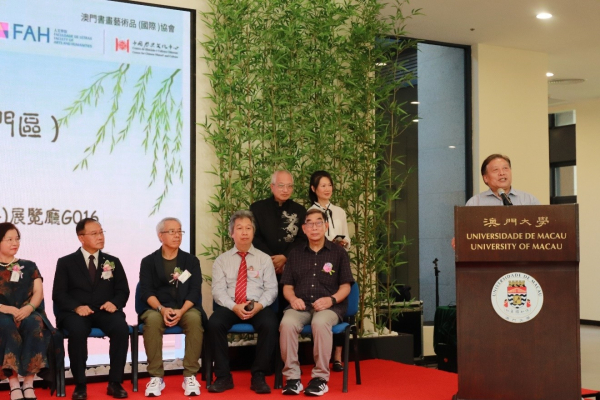
Prof. Zhu Shoutong, Director of Centre for Chinese History and Culture of the University of Macau, delivered a speech at the opening ceremony.
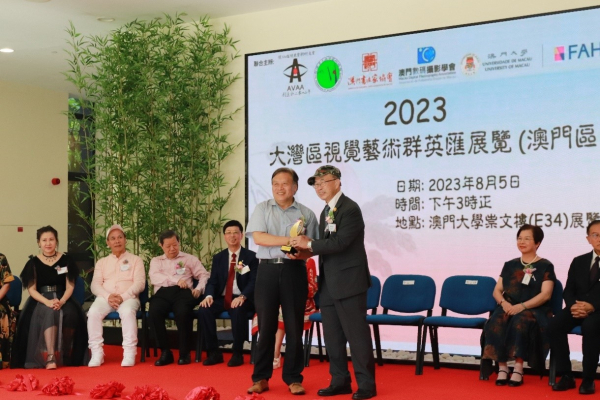
The organizer presented a souvenir to Prof. Zhu Shoutong.
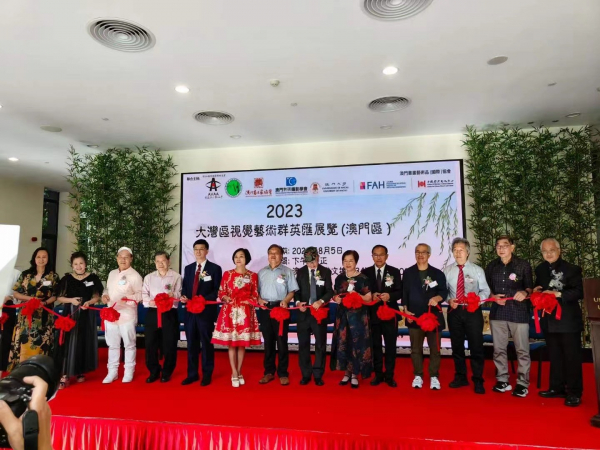
Ribbon Cutting
The exhibition was held in the Multifunctional Exhibition Hall G016, Cultural Building (E34) of the Centre for Chinese History and Culture of the University of Macau, and attracted many artists from the Greater Bay Area. Professor Prof. Zhu Shoutong, Director of Centre for Chinese History and Culture of the University of Macau, expressed that visual art is a Chinese historical and cultural art worthy of promotion, and that the exhibition was inspired by different artistic fields that can be tolerated and worked together to truly sublimate the arts for the benefit of the future. The President of The Macao Calligraphers’ Association, Ms. Kung Po Mei in her speech said that the Outline of the National 13th Five-Year Plan proposes to support Hong Kong and Macao to play an important role in the Pan-Pearl River Delta (PPRD) regional cooperation, and to promote the construction of the Guangdong-Hong Kong-Macao Greater Bay Area (GBA). The Bay Area has great potential for development in industry, commerce, finance, innovation and arts and culture. The organizer hopes to promote the development of the Greater Bay Area through this event. At the same time, the organizer hoped to promote the interaction and unity of visual artists in the Greater Bay Area through the event.
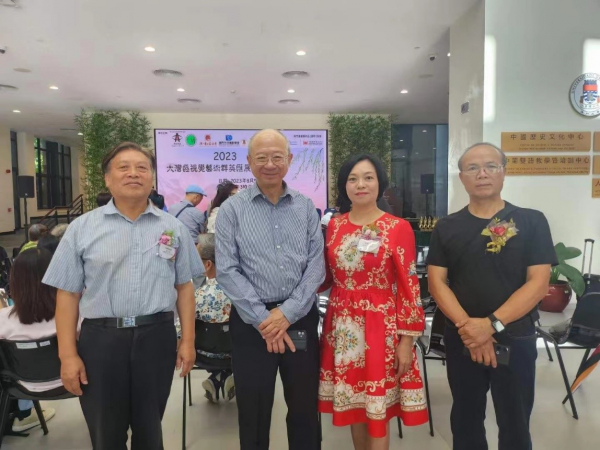
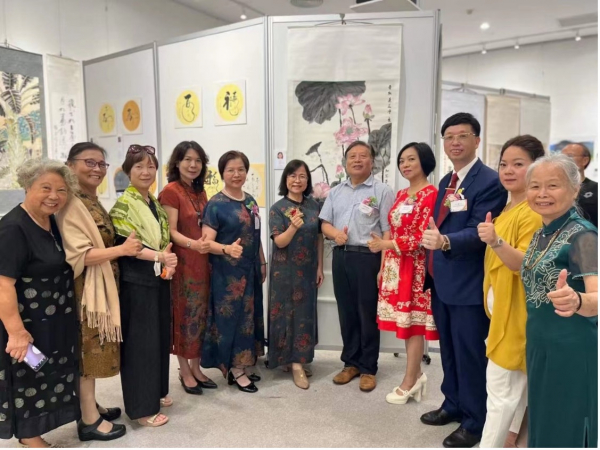
Group photo of opening ceremony guests
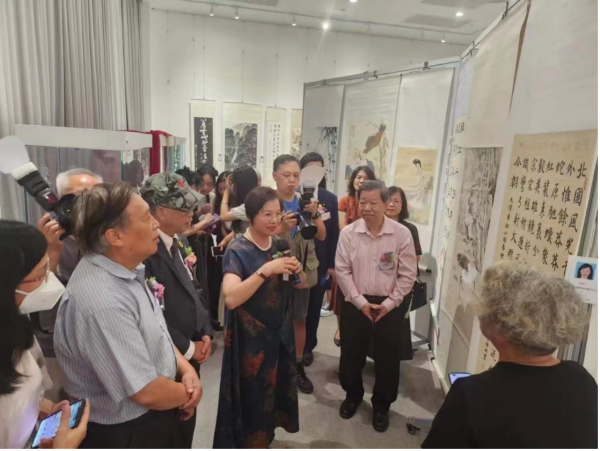
Guests visited the exhibition








